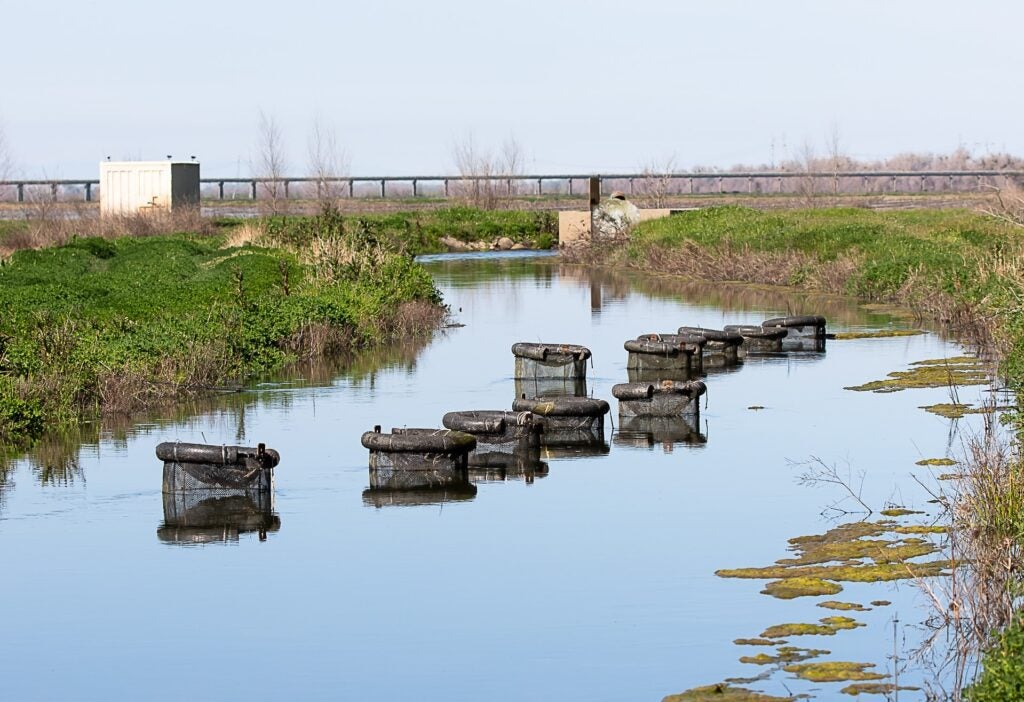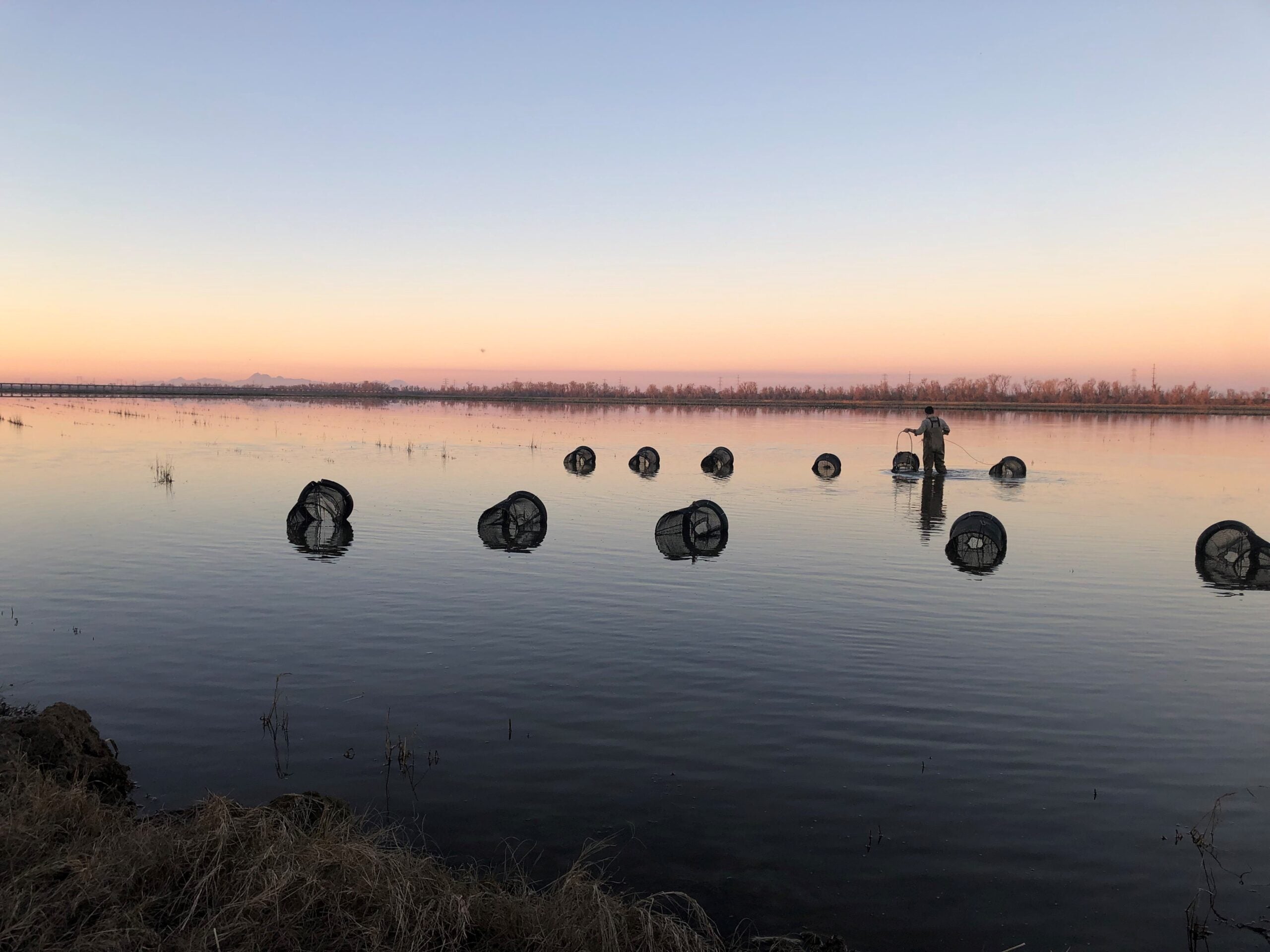Authors: Ph.D. Student Cassidy Cooper and Dr. Ken Zillig
Complementing work studying trophic interactions, Cassidy and Ken are investigating how food availability influences the capacity of juvenile Chinook salmon to tolerate heat stress. Building upon a hypothesis proposed by Lusardi et al. (2020), Ken and Cassidy are conducting a paired laboratory and field experiment.
In the lab they reared juvenile salmon at three temperatures (11, 16 and 20°C) and exposed them to three rations of food availability (low, medium and optimal) so as to force an energetic challenge upon rearing salmon. They hypothesized that when facing an energetic restriction, juvenile salmon will be forced to make tradeoffs and may sacrifice thermal tolerance and capacity more than well-fed fish. Upon fish reared under these different conditions Cassidy and Ken measured growth rate, critical thermal maximum, burst performance, upper incipient lethal limits and metabolism. The results of this study are currently being analyzed.

This past winter, Cassidy and Ken conducted a complementing field experiment which caged juvenile salmon in field locations which experience different thermal regimes and food availabilities. In doing so they hope to test whether laboratory derived results will match those observed in the field, or whether new, interesting dynamics of field rearing appear.
